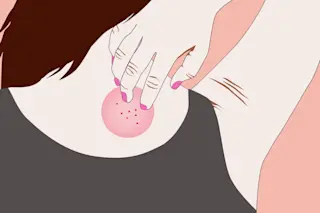It seems hard to believe that a basic human sensation — one that can be evoked by a simple mosquito bite — still has scientists scratching their heads. Yet despite centuries of study, understanding itching is still fraught.
Itch, write two scientists in a review in the journal Immunity, “has been described as one of the most diabolical sensations. In Dante's Inferno, falsifiers were eternally punished by ‘the burning rage of fierce itching that nothing could relieve.’” Yet, the researchers note, “There have been very few advances in itch treatment in over 360 years.”
That’s finally starting to change. In the past decade, scientists have made strides toward understanding this infuriating sensation. They are untangling itchiness from other noxious stimuli, such as pain. They are even starting to distinguish one type of itch from another, by poking study participants with itch-inducing plant spikes or deleting itch-related genes from mice.
This ...














